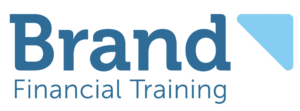With the first R06 exam of 2025 fast approaching, in the second of our articles this week focused on helping paraplanners through their exams, the Brand Financial Training team look at the challenges this particular exam presents and how to overcome them.
‘I’ve failed R06, and I don’t know what I’m doing wrong – can you help?’. If only we had a pound for every time we heard this! Many candidates assume R06 will be a breeze, thinking that, since they’ve been given the case studies before the exam they know what questions will be asked. Unfortunately, that’s not the case! While it’s true you can prepare by focusing on the potential questions, be ready for the CII to throw in some curveballs—they’re very good at doing this!
R06 is unlike any exam you’ve probably faced before, so don’t be too hard on yourself if you didn’t pass. Yes, the pass rate typically falls between 70 to 75%, but we’d love to know the pass rate for first-time candidates—it’s probably much lower! In this article we’ll explore some of the key reasons candidates don’t pass and how to learn from these experiences.
For some, it may be a matter of not doing enough revision, particularly on the technical topics. This is an easier fix which can be addressed by building in some extra revision time for the next exam. For many candidates, however, the issue lies in exam technique.
CII marking scheme
The best way to understand how the CII allocate marks for a question is to study past exam guides and the CII model answers. Let’s have a look at some examples from the last R06 exam – case study 1 of the October 2024 exam:
A straightforward fact-finding question featured in case study 1, the first two model answers were:
- Expenditure/surplus income/budget/affordability/emergency fund.
- Amount of planned gifts/loans to grandchildren/when do they intend to gift money/previous gifts made/Annual Gifting Allowances.
The first answer covers income and expenditure, meaning only one mark will be awarded for any of those points between the obliques. The second answer relates to gifts, and again, only one mark is awarded for any of those points. Don’t be fooled into thinking you have picked up 7 or 8 marks by writing all these points down, the CII love to group together the answers and, as demonstrated above, only one point will be available for each subject area.
Let’s look at another question from the October exam which asked to identify a range of actions that Cameron and Nancy could take to improve the sustainability of their retirement income.
Two of the model answers here were:
- Transfer more Unit Trusts to Nancy.
- Reduces dividend tax to 8.75%/saves 25%/CGT to 10%.
As you can see, the action is to transfer more of the UT to Nancy and the justification is the taxation benefits.
Three points of note here, firstly the question isn’t worded as a ‘recommend and justify a range of actions’ question but an ‘identify a range of actions’ however you will still be expected to justify why your action would be of benefit, in this case, for the tax benefits. Secondly, only one mark is on offer for the tax benefits so you won’t pick up two marks for mentioning both the reduced dividend rate and the reduced CGT rate. Thirdly, you will be expected to know the applicable tax rates for the clients so in Nancy’s case dividends will be taxed at 8.75%/or a saving of 25% (as Cameron would be taxed at 33.75%) etc. These figures are given in the tax tables available in the exam –so do remember to use them!
While we encourage candidates to write down everything they feel is relevant, it’s important to be mindful of what marks you are likely to pick up so as not to waste time in the exam. Also, always bespoke the answers to the clients and include their tax rates where applicable.
Read and analyse the question
Having worked with R06 candidates for over a decade, we know that this is one of the most common reasons candidates feel they should have performed better. It’s a major drawback of receiving the case studies two weeks before the exam – you tend to focus on the answers you’ve prepared based on the questions you expect to be tested on. However, what you think will be tested can sometimes differ (even subtly) from what is actually being asked, leading you to attempt to fit your pre-prepared answers into the actual question.
For example, if a question asks for a ‘range of ways’ to gift money to grandchildren, and you’re convinced that using a trust is the best solution, you might end up writing eight points about it. However, “use of trust” may only earn you one or two marks.
Examiner comments are always insightful, and in the October 2024 exam guide, it was noted that in a question about improving the tax efficiency of Kabir’s individual equity holdings in various UK smaller companies, “general performance was poor as many candidates focused on other elements of Kabir’s financial arrangements, rather than concentrating on the UK smaller companies shares.”
If the question specifically asks about UK smaller company shares, discussing other assets like cash holdings won’t earn you marks. Similarly, if the question asks about tax efficiency, you won’t earn points for stating that the holdings don’t match the risk profile. Always stick to what the question is actually asking!
Don’t forget the obvious
Sometimes candidates get caught up in the details. We often hear feedback such as, “I was so focused on getting as many points down as possible that I missed the obvious ones,” such as stating that pensions offer tax relief on contributions (and remember to include the relevant tax relief rate for the individual!). Or simply explaining why a unit trust isn’t suitable by stating it’s “not tax efficient” can easily earn you a mark. This is a useful tip to keep in mind when reviewing your answers at the end.
CII re-mark
Although CII re-marking can be expensive, it offers valuable feedback on where you may have gone wrong. If you’re only a few marks shy of passing, there’s also a chance that a re-mark could change your result to a pass!
About Brand Financial Training
Brand Financial Training provides a variety of immediately accessible free and paid learning resources to help candidates pass their CII exams. Their resource range ensures there is something that suits every style of learning including mock papers, calculation workbooks, videos, audio masterclasses, study notes and more. Visit Brand Financial Training at https://brandft.co.uk
Main image: ravi-palwe-I3urDa6z2_4-unsplash-































